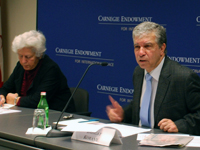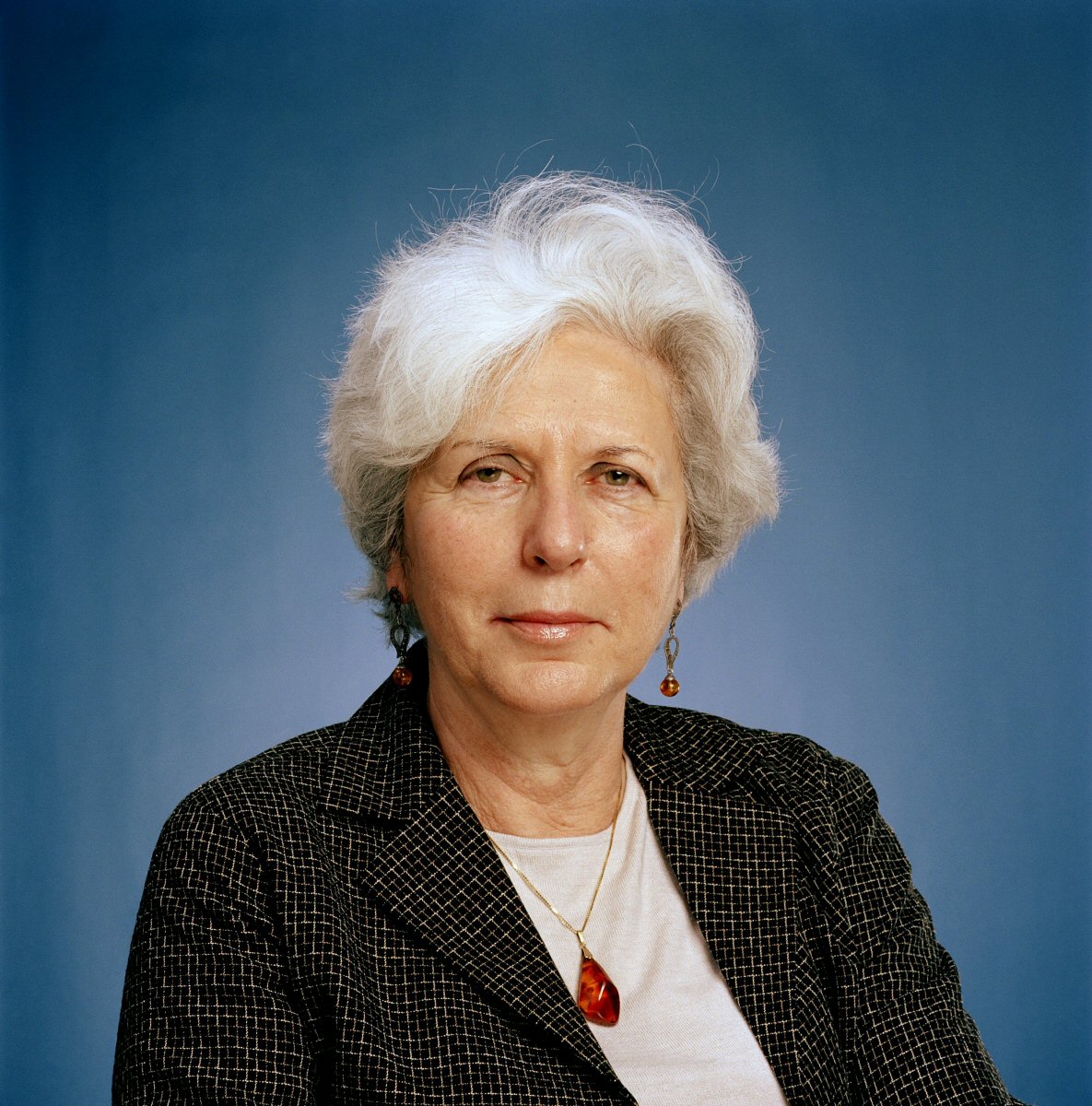{
"authors": [
"Marina Ottaway",
"Bahgat Korany"
],
"type": "event",
"centerAffiliationAll": "dc",
"centers": [
"Carnegie Endowment for International Peace",
"Malcolm H. Kerr Carnegie Middle East Center"
],
"collections": [
"Arab Awakening"
],
"englishNewsletterAll": "menaTransitions",
"nonEnglishNewsletterAll": "",
"primaryCenter": "Carnegie Endowment for International Peace",
"programAffiliation": "MEP",
"programs": [
"Middle East"
],
"projects": [],
"regions": [
"Middle East",
"North Africa",
"Egypt"
],
"topics": [
"Political Reform",
"Democracy"
]
}
Egypt: Is There a Way Forward?
Fri, December 2nd, 2011
Washington, D.C.
IMGXYZ3354IMGZYXFacing a reinvigorated protest movement and multiple rounds of elections, Egypt is in the middle of a critical stage of its transition with no agreement among political forces about what the next steps should be. Egypt’s Supreme Council of the Armed Forces (SCAF) lost popularity after a harsh crackdown on mass protests in Cairo and other major cities on November 19. At the same time, the Muslim Brotherhood faces the new challenges of maintaining internal unity and building political coalitions after winning big in the first stage of parliamentary elections that began on November 28.
The American University of Cairo's Bahgat Korany discussed the major challenges facing the country. Carnegie's Marina Ottaway moderated.
Post-Revolutionary Egypt
- Major Actors: Korany suggested that there are three major political forces in Egypt today: the SCAF and the military; the Islamists; and what he described as the ‘Republic of Facebook,’ the coalition of young liberals, leftists, and workers.
- Future: Although the elections appear to have begun smoothly, there are a number of reasons to be concerned about the future of Egypt, including the deteriorating security situation and the bleak state of economic affairs in the country, Korany stated.
The Military
- Popularity: The military began this transitional period with widespread prestige because of the restraint it showed by not firing on protesters, as well as the traditional popular attachment to the military, Korany argued. However, this popularity has diminished in the past weeks.
- Mistrust: Korany outlined a number of reasons for growing mistrust of the SCAF:
- Elections: Although the security situation in Egypt has been deteriorating since February, the military was able to secure the elections, which led many to believe the military was not acting in the interest of the general population.
- Old Regime: Its members are viewed as part of the old regime.
- Economy: The military is widely known to have major economic interests.
- Politics: Distrust of the military will naturally increase as the SCAF becomes simply another actor in the political sphere, Korany added.
The Islamists
- Commonalities: The Islamists, Korany said, are not a monolithic group, but they do share a high level of organization and presence on the ground that the liberal parties lack.
- Pragmatism: Korany characterized the Islamist groups, particularly the Muslim Brotherhood’s Freedom and Justice Party, as pragmatic opportunists who did not spearhead the revolution, but are taking advantage of the changes.
- Potential Challenges: Korany added that the Islamists face two major challenges in the coming months: controlling the ranks of their groups, particularly the youth, and maintaining unity; and establishing real policies on the critical issues facing Egypt today.
- Muslim Brotherhood and Salafis: Despite reports that the Freedom and Justice Party was not planning on allying itself with the more conservative Salafi al-Nour party, there is not likely to be a complete break between the two groups, Korany said. There are too many critical issues that the two agree on.
The Protest Movement
- Unexpected Success: The ‘Republic of Facebook,’ the coalition of young liberals, leftists, and workers who initiated the January 2011 uprising, did not anticipate that the protests would grow as strong as they did and were surprised by their own success, Korany said.
- Primary Characteristics: Korany characterized this group as idealistic and determined, but lacking experience and an on-the-ground presence outside of Egypt’s urban centers. Their primary goals are gender equality, human rights, and democratization.
- Potential Challenges: Like the military and the Islamists, this group faces a number of significant challenges, Korany said, including the need to bridge the generational and rural-urban divides that separate them from significant portions of the Egyptian populace and the need to avoid becoming marginalized after the elections when the new parliament establishes a decision-making mechanism that bypasses Tahrir Square.
Carnegie does not take institutional positions on public policy issues; the views represented herein are those of the author(s) and do not necessarily reflect the views of Carnegie, its staff, or its trustees.
Event Speakers
Before joining the Endowment, Ottaway carried out research in Africa and in the Middle East for many years and taught at the University of Addis Ababa, the University of Zambia, the American University in Cairo, and the University of the Witwatersrand in South Africa.
Bahgat Korany
